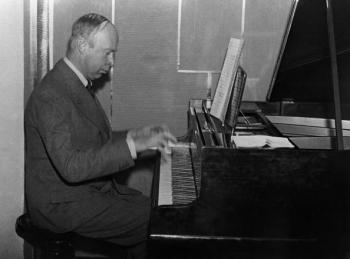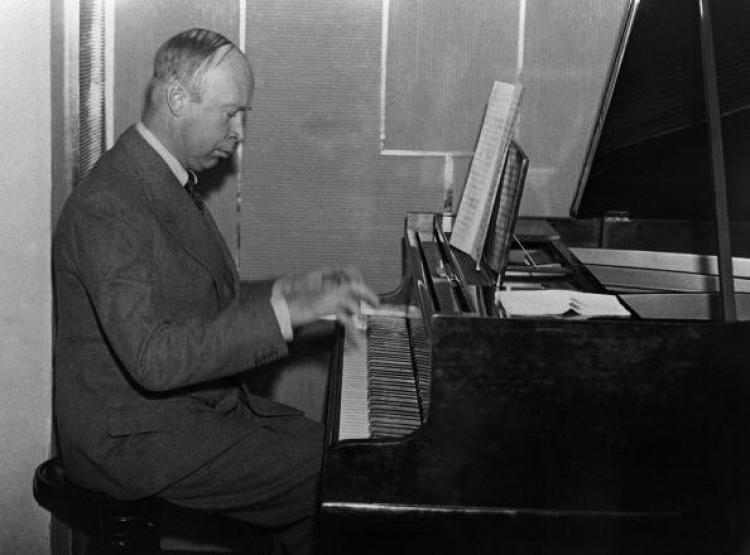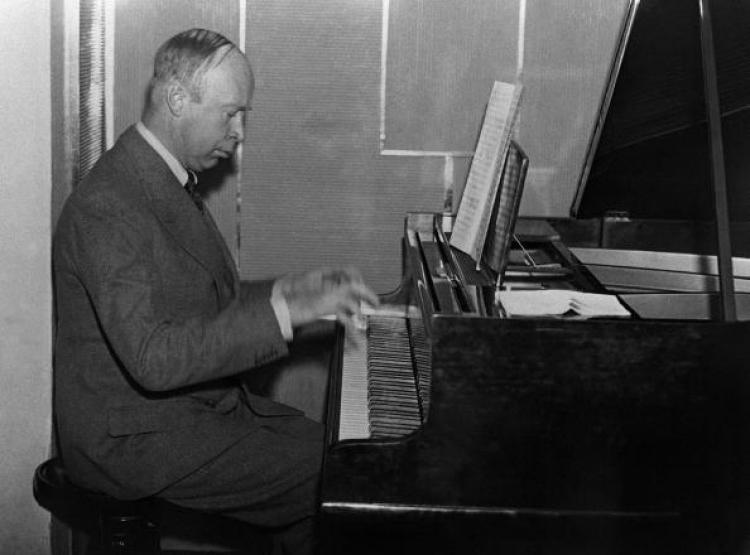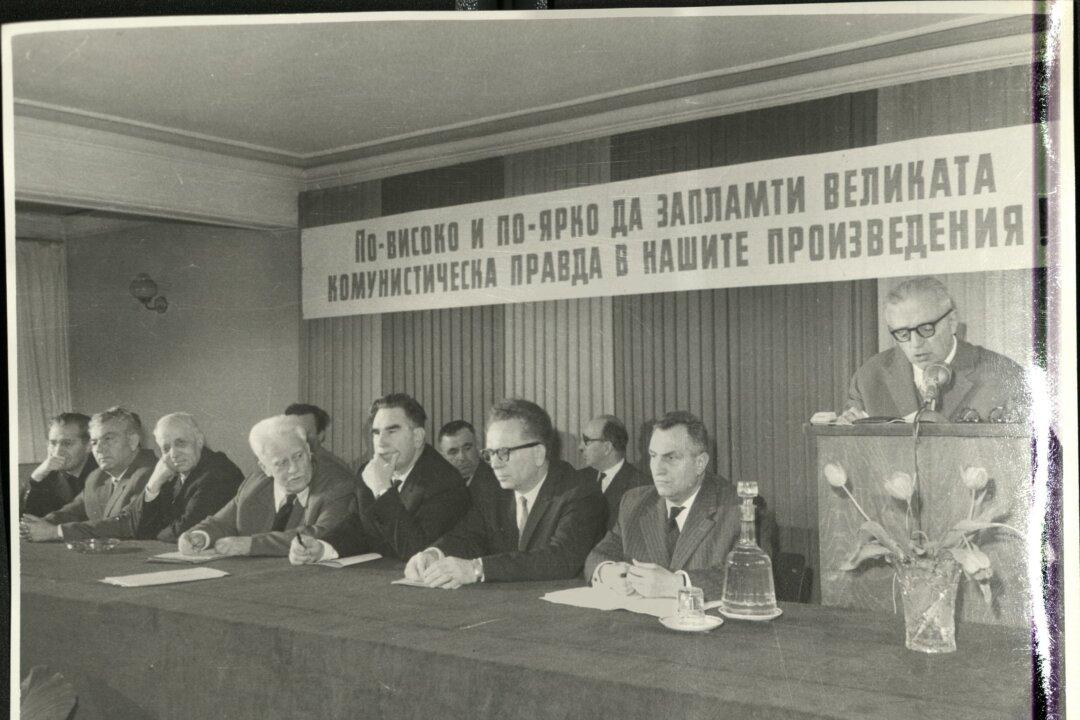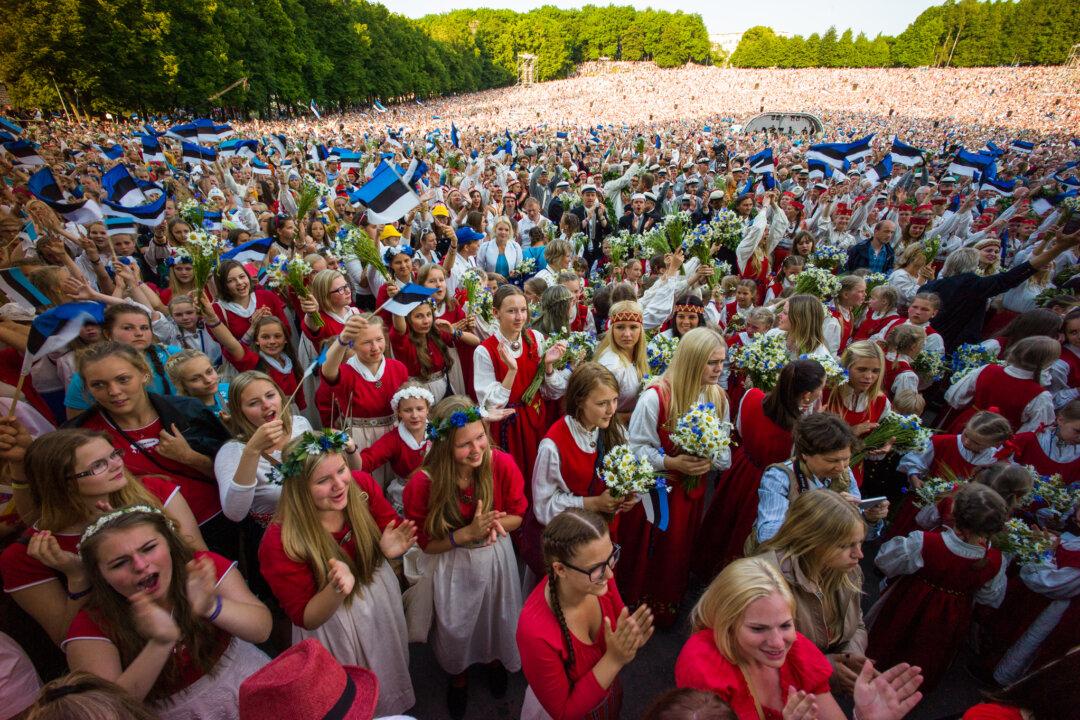During the whole first week of June, New York’s Lincoln Center will resound with the genial music of one of the greatest composers of the 20th century—Sergei Prokofiev. The Metropolitan Opera together with the American Ballet Theatre (ABT) will celebrate two of his ballets, “On the Dnieper” and “Prodigal Son,” as well as “Waltz Suite, op. 110.”
“On the Dnieper” (also knows as “Sur le Borysthène” in French), Prokofiev’s fourth ballet, will have its world premiere at the Met with brand new choreography by Alexei Ratmansky, former artistic director of the Bolshoi Ballet and a new artist at the ABT.
A product of Prokofiev’s collaboration with Serge Lifar, a Ukrainian choreographer and dancer of French origin, the work tells an exciting love story. After its Paris premiere in 1932, and despite the encouraging feedback by Russian composer and conductor Igor Stravinsky, the ballet closed early. Perhaps critics expected from Prokofiev something similar to his previous work, “The Prodigal Son.”
The second highlight in the Met program, “The Prodigal Son,” will serve to culminate the performance. It celebrates the centenary of the Ballets Russes, then directed by impresario Sergei Diaghilev. Choreographed by George Balanchine and commissioned by Diaghilev, “The Prodigal Son” was performed for the first time in 1929 at the Théâtre Sarah-Bernhardt, Paris.
The scenario was inspired by the Gospel of Luke and accompanied by strong dramatic moments whirling around the topic of sin and salvation.
The American Ballet premiered the ballet in 1934, but Prokofiev was dissatisfied with Balanchine’s choreography for the role of the Siren. Prokofiev envisioned the role quite differently, and he decided to not pay Balanchine for his work.
Controversial Prokofiev
Sergei Prokofiev is considered one of the most notable and progressive composers of the previous century. Even in his lifetime, the Ukraine-born musician was deemed controversial and was loved and hated at the same time. He was able to astonish, provoke, and repulse his listeners by applying a great variety of musical styles and techniques. Prokofiev was criticized for his forward-thinking and striving toward Modernism.
His “Sarcasms for Piano, op. 17,” presented in 1912, and his first two piano concertos composed approximately at the same time, met with resistance due to their use of polytonality and dissonance. The story goes that the audience exclaimed: “The cats on the roof make better music!”
Chad Twedt quotes in his work “Mystery and Contradiction” from McAllister’s New Grove Dictionary that Prokoviev “disdained the Classical repertory, and if he played Mozart or Schubert at all, it was with his own doublings and ‘improvements.’”
From an early age, Prokofiev walked his own path of understanding in creating music. He used the format of Classical-style compositions such as symphonies and operas, but always marked and changed them in his own unique way.
Interestingly, despite his being accused of neglecting Classical music, the young virtuoso actually strove toward harmony, which he shared in an interview in 1941 (David Ewen’s “The New Book of Modern Composers”).
“I strive for greater simplicity and more melody. Of course, I have used dissonance in my time, but there has been too much dissonance.”
Prokofiev: The Prodigal Son
Little Sergei revealed his extraordinary inclination toward music at the age of 5. At the age of 9 he was already making attempts at his first opera, followed by his first symphony when he was 11. In 1904, supported by his mother, the 13-year-old wunderkind applied at the Saint Petersburg Conservatory and immediately started to take lessons in composition.
Among his first masters was Nikolai Rimsky-Korsakov, who taught him orchestration. After studying composition, conducting, and piano, in 1914 Prokofiev graduated the conservatory with the highest marks.
His later years were filled with trips to London, Paris, and the United States, and also many bold experiments in the field of music.
Prokofiev left behind numerous distinguished masterpieces like the ballets “Romeo and Juliet” (1935), “Cinderella” (1943), the operas “The Love for Three Oranges” (1919) and “War and Peace” (1945), and the children’s tale for orchestra “Peter and the Wolf” (1936). His best known and loved works were created in his later years, when he had returned to his homeland and where he met his end.
More about Prokofiev celebrations at the Metropolitan Opera: http://www.metoperafamily.org/metopera/ [^]
“On the Dnieper” (also knows as “Sur le Borysthène” in French), Prokofiev’s fourth ballet, will have its world premiere at the Met with brand new choreography by Alexei Ratmansky, former artistic director of the Bolshoi Ballet and a new artist at the ABT.
A product of Prokofiev’s collaboration with Serge Lifar, a Ukrainian choreographer and dancer of French origin, the work tells an exciting love story. After its Paris premiere in 1932, and despite the encouraging feedback by Russian composer and conductor Igor Stravinsky, the ballet closed early. Perhaps critics expected from Prokofiev something similar to his previous work, “The Prodigal Son.”
The second highlight in the Met program, “The Prodigal Son,” will serve to culminate the performance. It celebrates the centenary of the Ballets Russes, then directed by impresario Sergei Diaghilev. Choreographed by George Balanchine and commissioned by Diaghilev, “The Prodigal Son” was performed for the first time in 1929 at the Théâtre Sarah-Bernhardt, Paris.
The scenario was inspired by the Gospel of Luke and accompanied by strong dramatic moments whirling around the topic of sin and salvation.
The American Ballet premiered the ballet in 1934, but Prokofiev was dissatisfied with Balanchine’s choreography for the role of the Siren. Prokofiev envisioned the role quite differently, and he decided to not pay Balanchine for his work.
Controversial Prokofiev
Sergei Prokofiev is considered one of the most notable and progressive composers of the previous century. Even in his lifetime, the Ukraine-born musician was deemed controversial and was loved and hated at the same time. He was able to astonish, provoke, and repulse his listeners by applying a great variety of musical styles and techniques. Prokofiev was criticized for his forward-thinking and striving toward Modernism.
His “Sarcasms for Piano, op. 17,” presented in 1912, and his first two piano concertos composed approximately at the same time, met with resistance due to their use of polytonality and dissonance. The story goes that the audience exclaimed: “The cats on the roof make better music!”
Chad Twedt quotes in his work “Mystery and Contradiction” from McAllister’s New Grove Dictionary that Prokoviev “disdained the Classical repertory, and if he played Mozart or Schubert at all, it was with his own doublings and ‘improvements.’”
From an early age, Prokofiev walked his own path of understanding in creating music. He used the format of Classical-style compositions such as symphonies and operas, but always marked and changed them in his own unique way.
Interestingly, despite his being accused of neglecting Classical music, the young virtuoso actually strove toward harmony, which he shared in an interview in 1941 (David Ewen’s “The New Book of Modern Composers”).
“I strive for greater simplicity and more melody. Of course, I have used dissonance in my time, but there has been too much dissonance.”
Prokofiev: The Prodigal Son
Little Sergei revealed his extraordinary inclination toward music at the age of 5. At the age of 9 he was already making attempts at his first opera, followed by his first symphony when he was 11. In 1904, supported by his mother, the 13-year-old wunderkind applied at the Saint Petersburg Conservatory and immediately started to take lessons in composition.
Among his first masters was Nikolai Rimsky-Korsakov, who taught him orchestration. After studying composition, conducting, and piano, in 1914 Prokofiev graduated the conservatory with the highest marks.
His later years were filled with trips to London, Paris, and the United States, and also many bold experiments in the field of music.
Prokofiev left behind numerous distinguished masterpieces like the ballets “Romeo and Juliet” (1935), “Cinderella” (1943), the operas “The Love for Three Oranges” (1919) and “War and Peace” (1945), and the children’s tale for orchestra “Peter and the Wolf” (1936). His best known and loved works were created in his later years, when he had returned to his homeland and where he met his end.
More about Prokofiev celebrations at the Metropolitan Opera: http://www.metoperafamily.org/metopera/ [^]

